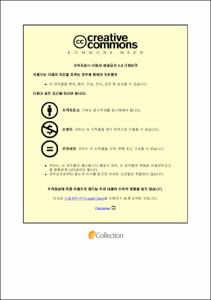The anti-inflammatory effects of eugenol, methyl eugenol, estragole, and pulegone through the regulation of NF-κB and Nrf2 signaling pathways in LPS-stimulated RAW 264.7 cells.
- Abstract
- Eugenol, methyl eugenol, estragole, and pulegone are naturally occurring organic compounds obtained from essential oils of a variety of plants. The aim of this study was to investigate the anti-inflammatory effects through the inhibitory mechanism of inducible nitric oxide synthase (iNOS), cyclooxygenase (COX-2), nuclear factor kappa B (NF-κB), mitogen-activated protein kinases (MAPK) pathways and the activation of nuclear factor erythroid 2-related factor 2 (Nrf2)/ heme oxygenase (HO)-1 pathways in Lipopolysaccharide (LPS) stimulated RAW 264.7 cells. The production of nitric oxide (NO) was detected by Griess reaction and ELISA. The expression of iNOS and COX-2 was detected by Western blot. The expression of NF-κB and MAPK was also detected by Western blotting analysis. Furthermore, the intracellular ROS level was measured using fluorescent probe DCFH-DA. Then the expression of HO-1 and Nrf-2 was detected by western blotting analysis. Additionally, molecular docking studies were performed to evaluate binding affinities and binding sites of eugenol, methyl eugenol, estragole, and pulegone towards iNOS. Results revealed that those four compounds significantly inhibited NO production as well as iNOS and COX-2 expression. Meanwhile, western blot analysis showed that pulegone, estragole, methyl eugenol, and eugenol inhibited LPS-induced NF-κB and MAPK activation in RAW 264.7 cells. Furthermore, all those compounds suppressed LPS-induced intracellular ROS production in RAW 264.7 cells, while the expression of stress response gene HO-1 was up-regulated via the activation of transcription factor Nrf-2. In addition, molecular docking results showed that pulegone exhibits higher binding affinity in iNOS inhibitory complex compared to others tested compounds. Collectively, these findings provide that pulegone, estragole, methyl eugenol, and eugenol inhibit the LPS-induced expression of inflammatory mediators via the down-regulation of iNOS, COX-2, NF-κB, and MAPKs pathways as well as up-regulation of Nrf-2/HO-1 pathway indicating that all four compounds have a potential therapeutic and preventive application in various inflammatory diseases
- Issued Date
- 2016
- Awarded Date
- 2016. 8
- Type
- Dissertation
- Publisher
- 부경대학교 대학원
- Affiliation
- 부경대학교 대학원
- Department
- 대학원 식품생명과학과
- Advisor
- 최재수
- Table Of Contents
- 1. Introduction 1
2. Materials and Methods 7
2.1. Chemicals and reagents 7
2.2. Preparation of compounds 8
2.3. Cell culture 8
2.4. Cell viability 8
2.5. NO production 9
2.6. Measurement of intracellular ROS 9
2.7. Western blot analysis 10
2.8. Molecular docking simulation 11
2.9. Statistical analysis 13
3. Results 14
3.1. Effects of eugenol, methyl eugenol, estragole, and pulegone on RAW 264.7 cell viability 14
3.2. Effects on NO production 16
3.3. Effects on the production of iNOS and COX-2 20
3.4. Effects on the activation of NF-κB 26
3.5. Effects on MAPK signaling pathways 32
3.6. Effects on intracellular ROS production 38
3.7. Effects on the regulation of HO-1 42
3.8. Effects on the regulation of Nrf-2 48
3.9. Molecular docking analysis 54
4. Discussion 61
5. Conclusion 69
6. References 70
- Degree
- Master
- Files in This Item:
-
-
Download
 The anti-inflammatory effects of eugenol, methyl eugenol, estragole, and pulegone through the regula.pdf
기타 데이터 / 3.19 MB / Adobe PDF
The anti-inflammatory effects of eugenol, methyl eugenol, estragole, and pulegone through the regula.pdf
기타 데이터 / 3.19 MB / Adobe PDF
-
Items in Repository are protected by copyright, with all rights reserved, unless otherwise indicated.